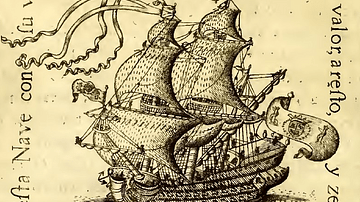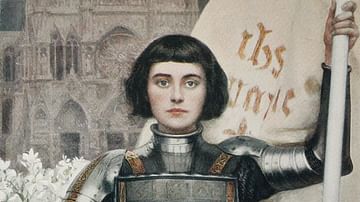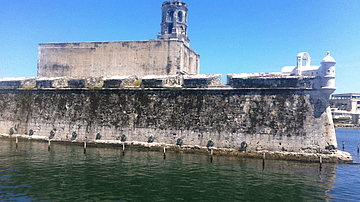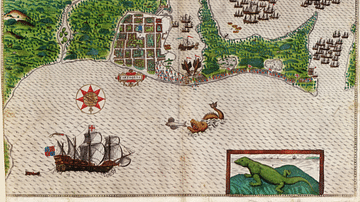Search Images
Browse Content (p. 636)

Image
Spanish Galleon
A 1734 copper print of a Spanish galleon. The text reads: Por Golfos mas procelosos, con valor, aresto y zelo, hace gala de Neptuno, esta Nave con su vuelo. - "Through the worst stormy waters, with courage, purpose, and zeal, this ship shows...

Image
Dedication of Legio II Adiutrix to Antoninus Pius
Dedication of Legio II Adiutrix to Antoninus Pius.
Aquincum, Budapest.

Image
Aquincum
Aquincum, Pannonia, modern-day Budapest, Hungary.

Image
Standard-bearer of Legio XIV Gemina
Tombstone of Gnaeus Musius, standard-bearer of Legio XIV Gemina, 1st century CE.
Landesmuseum, Mainz.

Image
Manila Galleon Passenger Luggage
Luggage from Asia used by passengers on such ships as the Manila galleons which connected Manila in the Philippines to Acapulco in Mexico from 1565 to 1815. (San Diego Fort Museum, Acapulco)

Image
Illustration of Joan of Arc
An illustration depicting Joan of Arc, by Albert Lynch, published in the Figaro Illustré magazine in 1903.

Image
Joan of Arc by John Everett Millais
Painting depicting Joan of Arc, or Jeanne d'Arc. Painted by John Everett Millais in 1865, oil on canvas.

Image
Fortifications, San Juan de Ulúa
A portion of the 16-17th century fortifications at San Juan de Ulúa, an island opposite the port of Veracruz, Mexico, once a major port on the Spanish Main. The rings in the walls were for ships to tie themselves to.

Image
British Attack on Portobelo, 1739
A detail of an 18th-century oil painting by Samuel Scott showing the British attack on Portobelo in November 1739 by Admiral Vernon. Portobelo, now in Panama, was a major port on the Spanish Main and a collection point for the treasure fleets...

Image
Cartagena on the Spanish Main
A c. 1589 map showing the port of Cartagena on the Spanish Main (now in modern Colombia). Cartagena was one of the main ports for the Spanish treasure fleets and acted as a collecting point for gold, silver, emeralds, and pearls from Colombia...